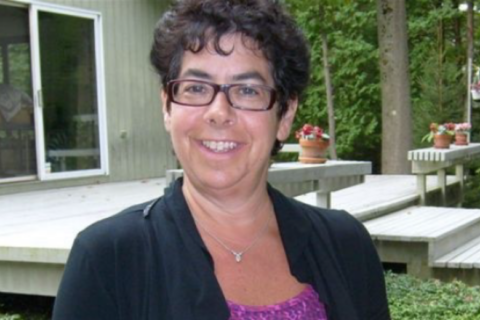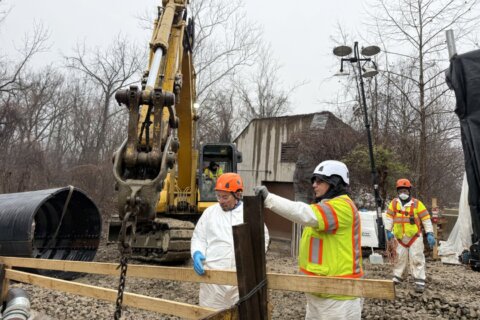High-profile cases in Montgomery County, Maryland, have experienced the largest delays of justice as COVID-19 continues to slow courts throughout the region.
The county’s top prosecutor spoke to WTOP about the challenges still at play and acknowledged some offenders let out of custody during the pandemic committed crimes.
“We did release hundreds of people that normally would have been in jail, into the community,” said State’s Attorney John McCarthy of the decision to keep some defendants from contracting COVID-19 in a congregant jail setting.
“Without getting into the details, there were some blips on the screen where there were crimes committed by people who were released. We didn’t bat a thousand. The judges didn’t bat a thousand. It’s a human system,” he said.
Blips refers to the electronic monitoring that some offenders wore for supervision. However, even that system of keeping tabs on people charged with crimes was hampered by the pandemic, McCarthy said.
“Whether you are on typical probation, or you are on pretrial release, nobody was doing home visits,” he said. For some defendants, “you were not only not holding them in jail, you weren’t even getting the normal level of supervision.”
Montgomery County Circuit Court, which processes criminal cases, has no backlog. That’s not the case in traffic court, McCarthy said. But that’s a very different story from D.C., where D.C. Superior
Court is facing more than 10,000 pending criminal cases.
Despite the pandemic, McCarthy said grand juries remained operational, which allowed the court to stay on top of indicting criminal cases. He also attributes the lack of unprocessed cases to an offer made to those facing charges for nonviolent crimes, such as trespassing or urination in public, for example.
“The kind of nuisance kinds of crimes that in many instances were spurred by drug addiction, alcoholism, mental health issues. We said, ‘Look, if you go to Health and Human Services and have your clients screened and advised about what the drug programs are, what the mental health programs are, simply for getting access and going for the screening, we would dismiss the charge,'” McCarthy said.
He is personally trying the upcoming murder case against David Dixon, an off-duty Pentagon Police officer who is accused of killing two men in his Takoma Park apartment parking lot. Because the crime got significant media attention, McCarthy expects it will be a ‘larger strike’ jury, meaning attorneys will have reason to eliminate some jurors from being seated, requiring a larger group to be summoned.
“You know, there might be a lot of people that say, ‘I’ve read a lot about this case. I don’t think I can be fair, impartial, I’ve made up my mind one way or the other,’ so you need a lot of people,” he said.
McCarthy’s concerned that an uptick in coronavirus cases in the county will mean a further delay in going to trial.
“We want to get back to these larger strike juries. People do have right to due process and speedy trial. But we also have to do it in a safe manner. I’m hoping that my trial date and many other trial dates — not just one case of many — are not compromised by this uptick in the Delta (variant),” he said.








